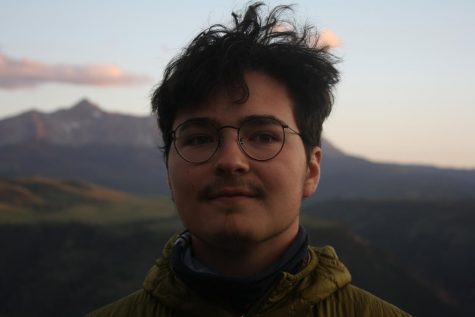Giba’s Claim: Think “I get to” versus “I have to”
Oct 7, 2021
Lately, I’ve been thinking about how to maximize my enjoyment of the time I spend on things I do not necessarily want to do. In the purest sense, what has benefitted me the most is changing my mindset from “I have to” to “I get to” when approaching any task.
As I’m currently in the first semester of my senior year, schoolwork takes up a significant portion of my time, and I often find myself not wanting to do some of it but feeling like I have to. I’ve found that this struggle of doing work—at some point—that is disinteresting or appears pointless seems to be universal to the student and human experience.
Whether it be an assignment deadline that pops up on Canvas for that one class you didn’t want to take but have to for your major, the absurd amount of data crunching ahead for that sixth Excel sheet in the semester or that seemingly pointless presentation that is due tomorrow, we all eventually grapple with doing something we don’t necessarily want to do.
I often find that “don’t want to do” plainly translates to, “this task is hard and requires significant effort, so I don’t want to do it as much.” Grappling with such a notion, I feel, is part of understanding the true nature of hard work.
How do we become interested though, willing to give the effort? I believe that part of the answer is in practicing curiosity, in approaching things in a way that will make them interesting; I believe anything can be made interesting. The answer to making something interesting does not lie in the task inherently, however. It lies in our own minds, in the simple choice I mentioned in this column’s opening.
I exercise the simple mindset shift from “I have to do this” to instead “I get to do this.”
Just this simple act of gratitude has completely changed how I feel about my day-to-day existence in a way I cannot fully articulate, as I am currently experiencing the changes. I have struggled with this feeling of obligation, the weight of doing anything, since I started school as a child. I was looking for an antidote, and I believe I may have found it. I can feel it in my mind and body—the feeling of genuine liberation—that my brain is rewiring the way it thinks about doing anything.
I’ve found the more I remember “I get to do this,” the more commitments and classwork no longer feel like burdens. Instead, they feel like opportunities—like chances to do my best work, like moments to learn, like prospects to be present and contribute and assimilate all aspects of my life and education to the best of my ability. In a wider sense, this perspective can genuinely be applied to everything we do.
Considering the extensive global languishing and depression brought on by the pandemic, I cannot express how much this simple change—something I can control—has improved my mental health. Thinking in the pocket of this subtle psychological shift, I am so much more content and grateful for even the simplest of opportunities.
I believe this switch is foundational for cultivating a growth mindset, a mindset destined to learn abundantly and expand. I like to visualize this mantra embodied as the metaphorical WD40 to my brain’s threading needle, enhancing the tool that swiftly knits an intricately patterned network of knowledge to draw from.
It’s my personal journey to give myself the tools to enjoy whatever I am spending my time on. I know I won’t always enjoy what I am doing, but I can find solace and drive in at least remembering that I get to do it, that I get to spend time on this earth doing things—“and that,” as Robert Frost once wrote, “has made all the difference.”













